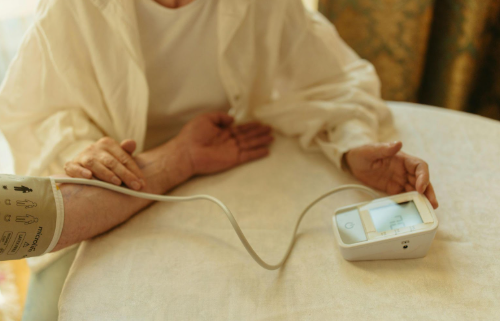Post-Surgery Recovery at Home: Why Home Health Care Is a Smart Option

Recovering after surgery can be a difficult phase. It requires time, rest, and proper care to help the body heal and regain strength. While hospitals offer expert care, many patients now prefer to recover in the comfort of their homes. This approach is not only more comfortable but also safer in many cases.
Here’s why home health care is a smart choice for post-surgery recovery. It discusses its benefits, how it works, and what to expect when choosing this option.
Understanding Post-Surgery Recovery Needs
After surgery, the body undergoes a healing process that depends on several factors, including age, type of surgery, overall health, and any existing medical conditions. During this time, patients may need pain management, wound care, help with mobility, physical therapy, and support with daily tasks.
Recovery also requires a peaceful environment. This is where the home setting can make a difference. It offers less noise, fewer interruptions, and a familiar routine. When combined with professional support, recovery at home can be more effective and less stressful.
What Home Health Care Offers
Home health care brings trained professionals into a patient’s home to assist with recovery. These professionals can include nurses, therapists, and personal care aides. They help with medical needs like dressing changes, medication reminders, and monitoring recovery progress.
In addition to medical support, they also guide patients on movement, nutrition, and self-care. If any complications arise, they report them quickly to the doctor. This regular attention allows small problems to be spotted and addressed early.
Home health care also helps family members. It takes pressure off caregivers by giving them expert help. This support can reduce stress and allow the family to focus on emotional care and comfort.
Supports Faster and Safer Healing
Recovering at home has many health benefits. Hospitals, though clean, still carry a risk of infections. Patients with weak immunity can be more at risk in a hospital setting. Being at home lowers exposure to infections.
At home, the patient can follow a care plan that fits their pace. They get one-on-one attention, which often leads to better results. Studies show that people heal faster and feel more confident when recovering in a familiar place.
Manages Pain and Medication Correctly
Pain is common after surgery and needs to be handled with care. Home health nurses can guide the patient on the right time and way to take medications. They track how the body is reacting and alert doctors if a change is needed.
This level of care lowers the risk of underuse or overuse of pain medicine. It also helps patients stick to their treatment schedule. When pain is under control, sleep improves, appetite returns, and healing becomes smoother.
Helps With Daily Tasks
Simple tasks like bathing, dressing, or cooking can feel difficult post-surgery. Home health aides are trained to help with such needs while keeping the patient safe.
They also offer physical support, like helping the patient walk or sit without strain. If movement is limited, they can assist with repositioning the body to prevent pressure sores. Their presence offers both physical and emotional relief.
Guides Physical and Occupational Therapy
For many surgeries, like joint replacements or spine procedures, therapy plays a key role in full recovery. Home health therapists visit the patient regularly to guide them through safe exercises.
They assess strength, balance, and posture. Based on progress, they update the exercises. This keeps the body active without putting too much strain. Having therapy at home also avoids the stress of traveling to a clinic, which can be tiring soon after surgery.
Prevents Hospital Readmissions
A major goal of home health care is to keep the patient from having to go back to the hospital. Regular checkups by nurses and therapists can catch warning signs early.
If there’s swelling, fever, shortness of breath, or signs of infection, the team informs the doctor at once. This timely action helps avoid bigger problems. By staying ahead of issues, patients can recover smoothly and
stay out of the hospital.
Offers Emotional Support
Surgery affects more than just the body. Patients may feel anxious, tired, or even isolated after the procedure. Home care teams understand this and provide emotional support along with physical care.
A nurse or therapist who checks in regularly becomes a familiar face. This bond helps patients feel more at ease and less alone during recovery. Talking to someone who understands their condition can make a big difference in outlook and motivation.
Builds Confidence and Independence
As the days go by, home care workers slowly help the patient take back control. They guide the person to do more tasks on their own, step by step. This builds strength and confidence.
The care plan is often adjusted to meet changing needs. As healing progresses, the focus shifts from support to independence. Patients feel more ready to return to work, hobbies, or daily routines.
When to Choose Home Health Care
Not every surgery needs home care. But for those with limited mobility, chronic illness, or high risk of complications, it can be a smart choice. Patients should talk to their doctor about whether home health care fits their recovery plan.
Insurance often covers these services, especially when ordered by a physician. Before starting, families should speak to the care provider and ask about the team, the schedule, and the kind of support offered.
Ready to recover at home with confidence? Choose us at
Five Star Home Health Care Agency for skilled, reliable, and compassionate post-surgery support in the comfort of your home. Our licensed nurses and caregivers help you heal faster, safer, and stress-free.
Contact us today to create your personalized recovery plan.










